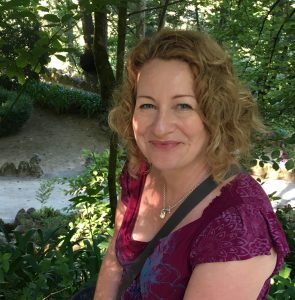December 6, 2016
 Something I’ve noticed as a counsellor is that too often people struggle on with their problems for longer than they need to before getting help. Often this is because they see counselling or therapy as a sign of weakness. Yet so many of my clients tell me they wish they’d started visiting me earlier than they did.
Something I’ve noticed as a counsellor is that too often people struggle on with their problems for longer than they need to before getting help. Often this is because they see counselling or therapy as a sign of weakness. Yet so many of my clients tell me they wish they’d started visiting me earlier than they did.
So when is the right time to try counselling?
If you’re reading this then probably now. Ok, that might sound a little presumptive but you have to want to start counselling or therapy for it to work. If you’re being pushed into by friends, family or even your employer and you don’t like the idea… it’s not going to be as beneficial to you. Counselling is a process that is led by you – you need to be wanting to make changes in your life for us to work together to figure out how, and what’s been stopping you. So if you’re looking at blogs and websites now is probably a good time to get started.
Some people are put off going to a professional because they have someone close to them that they talk to – why pay someone to do that? It’s important to distinguish between how a counsellor can help you, over that of a friend or loved one. The value of talking to someone close to you can never be underestimated, they know you best after all! But often that is the very reason why you need to talk to someone else.
A counsellor has the emotional expertise and experience to be able to help you navigate through your difficulties and find your way again
Rather than talking about the issues counselling can help with, let’s look at how counselling has helped Marie (fictional representation of a past patient).
 Marie had been experiencing low moods for quite a while and getting easily irritated over the smallest of things. This had started to develop into anxiety and depression and Marie was struggling to find ways to cope. She’d tried talking to her friends but they couldn’t understand why she wasn’t happy. Feeling increasingly cut off, Marie knew she needed to talk to someone who could help.
Marie had been experiencing low moods for quite a while and getting easily irritated over the smallest of things. This had started to develop into anxiety and depression and Marie was struggling to find ways to cope. She’d tried talking to her friends but they couldn’t understand why she wasn’t happy. Feeling increasingly cut off, Marie knew she needed to talk to someone who could help.
Marie started attending weekly counselling sessions where she found it helpful having someone to talk to who had no pre-conceived ideas or judgements about her life. She was able to voice her thoughts and concerns in a way that she couldn’t with anyone else.
With a friendly and objective ear to talk to, Marie began figuring out the causes of her problems with some gentle guidance. Once she’d considered the best ways of addressing them and started to take action, she began to feel much happier.
Sometimes friends want to offer their viewpoint and ‘fix’ the problem for you, but a counsellor is there to ensure that the decisions you make are the right ones for you. It’s because they don’t have any vested interests that they can be completely objective and offer a balanced perspective.
Counselling isn’t a quick fix, but it does help in reaching long lasting solutions
 Marie’s problems aren’t uncommon, and it’s certainly not a sign of weakness turning to a counsellor to help with them. It’s a way of taking back control and working things out for yourself, enabling you to make lasting changes in how you approach life and its challenges.
Marie’s problems aren’t uncommon, and it’s certainly not a sign of weakness turning to a counsellor to help with them. It’s a way of taking back control and working things out for yourself, enabling you to make lasting changes in how you approach life and its challenges.
So let’s look at Marie’s problems in a little more detail, and how counselling helped with them.
Low mood
A low mood every now and then is a regular part of life but Marie was consistently feeling low and just couldn’t find a way to get herself out of it. She was starting to feel incredibly anxious and found herself slipping into depression. Marie said she was easily irritated by anything and would often fly off the handle at the smallest thing – she felt out of control.
In counselling we were able to create a safe environment for Marie to talk through her thoughts and feelings. As is often the case, Marie felt out of control of her emotions due to suppressing them for too long. So we talked through some of the important life events that had affected her in the past and how she could move on from them, and found some coping mechanisms she could use to help with any difficulties in the future.
 We often don’t realise just how much past experiences can affect us in the here and now, and talking them through can be extremely difficult. Being able to make the connections between the problems you are finding challenging to cope with today and what you have found difficult in the past, can help you identify potential challenges early enough to be able to put coping mechanisms and strategies in place before they can become an issue.
We often don’t realise just how much past experiences can affect us in the here and now, and talking them through can be extremely difficult. Being able to make the connections between the problems you are finding challenging to cope with today and what you have found difficult in the past, can help you identify potential challenges early enough to be able to put coping mechanisms and strategies in place before they can become an issue.
Counselling is a cathartic process that can be a real eye opener enabling you to move on from what has been holding you back.
No one listens anymore
 Marie said she found it increasingly difficult to find friends she could talk to. Few of them could understand why she wasn’t happy and she couldn’t keep turning to the ones that did. Marie was increasingly feeling alone and isolated – which turned out to be the main reason she came to me for help.
Marie said she found it increasingly difficult to find friends she could talk to. Few of them could understand why she wasn’t happy and she couldn’t keep turning to the ones that did. Marie was increasingly feeling alone and isolated – which turned out to be the main reason she came to me for help.
A counsellor is there to listen without judgement. As I hadn’t met Marie before I didn’t have any preconceived ideas about her or her life. I was genuinely interested in listening to Marie’s concerns and supporting her in finding the right solution for her wants and needs.
Counselling isn’t just about having no one else to talk to, lots of people turn to a counsellor despite being surrounded by friends and family. It’s having someone entirely focused on you, your needs, your difficulties and finding the right way to overcome them for you. As counselling is all about you, you have the control to take things at your pace and really delve into your difficulties in a way you’ve probably never been able to before.
Low confidence and self-esteem
After a few sessions with Marie, she told me how she couldn’t understand where she’d lost her confidence and self-esteem. She was always the bubbly one but now she struggled to be outgoing. It’s not unusual for confidence levels to fluctuate through our lives, but it can be tricky working out why and how to get it back again.
During counselling we discussed how Marie’s ideas of what she should be like were typical of how media tell us we should be. There was a disconnect when Marie compared herself to the women she was reading about in magazines and this was the cause of her low self-esteem and loss of confidence. We talked about setting her own personal standards and ways of judging if she was doing ok rather than constant comparison to other people.
 Traditional and social media can all influence the view we have of our lives, those of our friends, and those in the spotlight. Often this is negative and we end up comparing ourselves unfavourably to other people.
Traditional and social media can all influence the view we have of our lives, those of our friends, and those in the spotlight. Often this is negative and we end up comparing ourselves unfavourably to other people.
An outsiders’ perspective and guidance can be a useful tool when working on your own confidence and esteem. Counselling offers this in a safe environment, free from judgement and prejudice.
Poor relationships with others
 Marie found it difficult to make lasting connections with other people, and was finding it harder to maintain her existing friendships. Sometimes we might have everything that we want from life but we just can’t seem to make our relationships work the way we would like them to.
Marie found it difficult to make lasting connections with other people, and was finding it harder to maintain her existing friendships. Sometimes we might have everything that we want from life but we just can’t seem to make our relationships work the way we would like them to.
Working with Marie I was able to help her identify that communication was her main stumbling block. We talked through the different ways she could communicate and how she might be able to improve. Marie put these ideas into practice and reported that she was going out with her friends more often and had even made some new ones.
Overall, Marie had felt that her life was stuck in a rut. She wasn’t living the life she had imagined or hoped to be leading, her friends seemed distant and aloof, and her low confidence and esteem were preventing her from getting ahead. Marie admitted that at times she felt like there was little point carrying on as her anxiety and depression were making things too difficult to cope with.
It can be difficult to be true to ourselves when we’re constantly bombarded by television and media telling us that we should be a certain way. But happiness and change can only occur through the process of establishing what you really want and need from life – not what others tell you! This is something that’s much easier to discover with a counsellor to help you.
There are many reasons why you might be considering counselling or therapy. If you’re reading this then maybe now is a good time to get in touch and start clearing the obstacles preventing you from being happy and successful?
 At Insight Counselling Brighton & Hove, I offer a relaxed and comfortable environment where you can safely talk through your issues and concerns, and start living the life you want to. Email me today at claire@insightcounsellingbrighton.co.uk and we can get started soon.
At Insight Counselling Brighton & Hove, I offer a relaxed and comfortable environment where you can safely talk through your issues and concerns, and start living the life you want to. Email me today at claire@insightcounsellingbrighton.co.uk and we can get started soon.
